Every herbalism teacher I've studied with has taught me to ask permission from plants before harvesting them in the wild. While this might sound bizarre to some of you, asking permission offers a moment to pause; to reflect on what we’re taking and why. It is a moment to survey the ecosystem in which the plant grows, acknowledge the original stewards of the land, and consider other species we might impact when harvesting.
Too often humans see nature as a resource and ask: What can this plant do for me? What are they good for? What do they do? and forget to ask who they are, what role they play in the ecosystem, and how many of their species are left. Whether or not you believe a plant with answer you back or that you’ll receive an intuitive ‘yes’ or ‘no’, asking permission slows us down to reflect on the fact that we’re disrupting a life. A valuable lesson in this day and age of mass-consumption.
Today, May 19th, is Endangered Species Day. When thinking about endangered species we often think about animals like red wolves or birds like condors but many plants are endangered, too. According to The Center to Biological Diversity, the IUCN has evaluated only 12,914 of the more than 300,000 known plant species and found that roughly 68 percent of evaluated plant species are threatened with extinction. We need to know where our plant medicine comes from, how it was harvested, and learn to identify and protect at-risk plants where we live before they are gone.
I spoke on behalf of endangered medicinal plants at Harvard a few weeks ago. The title of my talk was: “Taken Without Permission: Medicinal Plants and Fungi on the Brink of Extinction and Remembering Reverence for Earth.” Young me would be proud. As a child growing up in Western Massachusetts, the woods were my sanctuary and playground. I was in love with nature and when I learned that humans could be so destructive and cruel, I wanted to work and speak on her behalf.
Part of this life-long effort evolved into Mount Owen Forest Sanctuary. A nature refuge founded with my partner to promote ecosystem diversity and resilience through forest stewardship and propagation of native and endangered plants and fungi. To accomplish our goals and foster an ethic of regenerative land stewardship, we provide hands-on learning, offer forest steward membership and pursue grants to protect and regenerate the woodlands.
Here are a few of the at-risk species we have either found or are cultivating at Mount Owen. If you live in the United States, they may be growing in woodlands near you, too:
BLOODROOT Sanguinaria canadensis
GOLDENSEAL Hydrastis canadensis
AMERICAN GINSENG Panax quinquefolius
TRILLIUM Trillium Spp
BLACK COHOSH Actaea racemosa
BLUE COHOSH Caulophyllum thalictroides
SOLOMON’S SEAL Polygonatum spp.
We evolved from plants, they make it possible for us to be here. Our health and well being is interdependent - they depend on us not to harm them, and now, in many cases, to protect them. I imagine that endangered or threatened species like trillium, goldenseal or red wolves would not want us to despair too long about their dwindling numbers, but instead to remember and feel the beauty of our interconnection. If we are moved enough by the magic and reality of our coexistence, we might be compelled into action before it’s too late, becoming part of their survival.
If you’d like to be on the list for upcoming events and support our mission at Mount Owen Forest Sanctuary, you can make a donation via our website and contact us here.

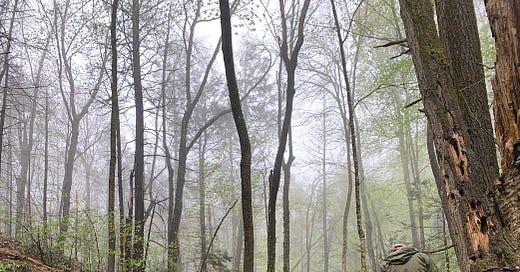



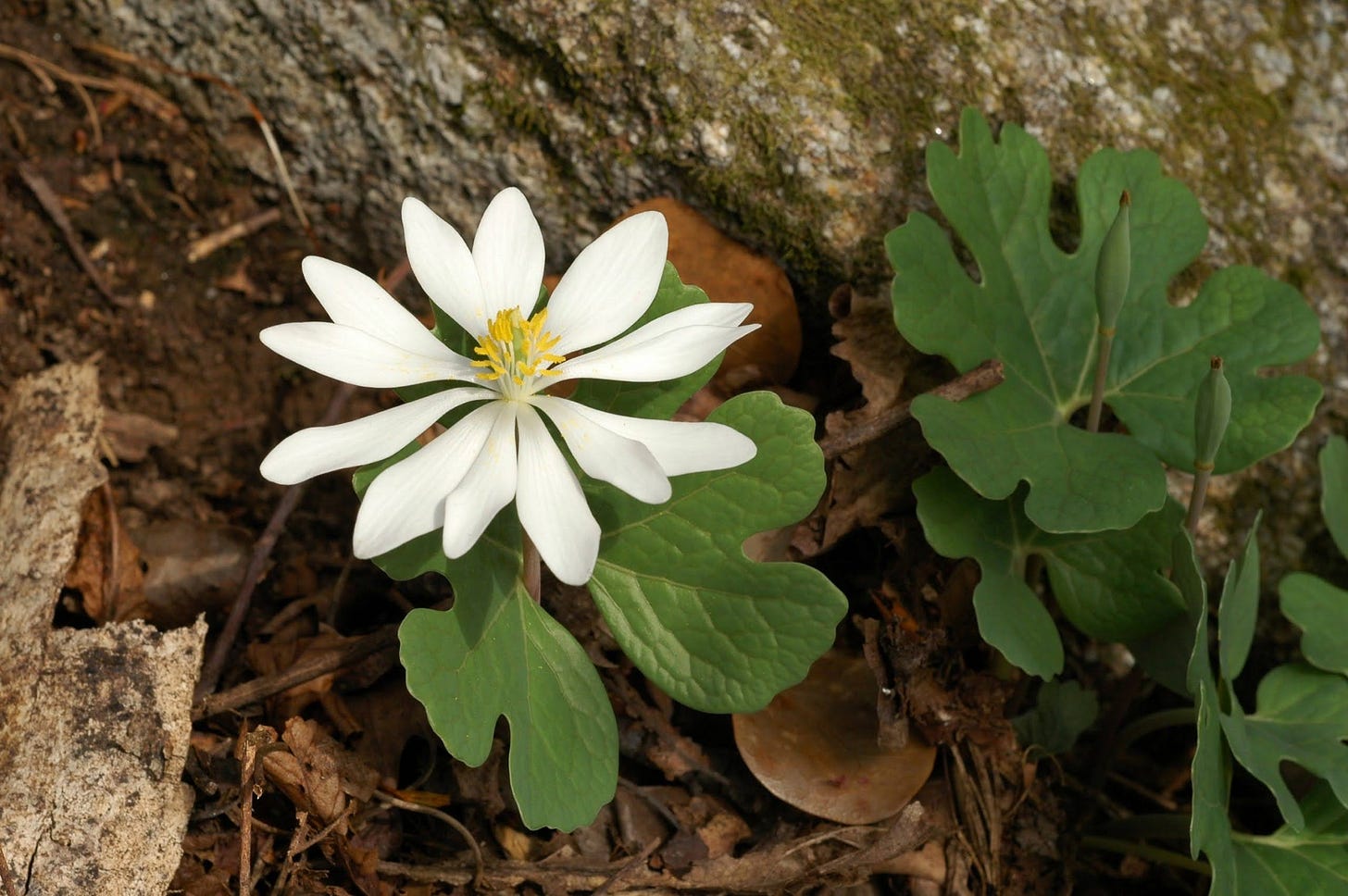
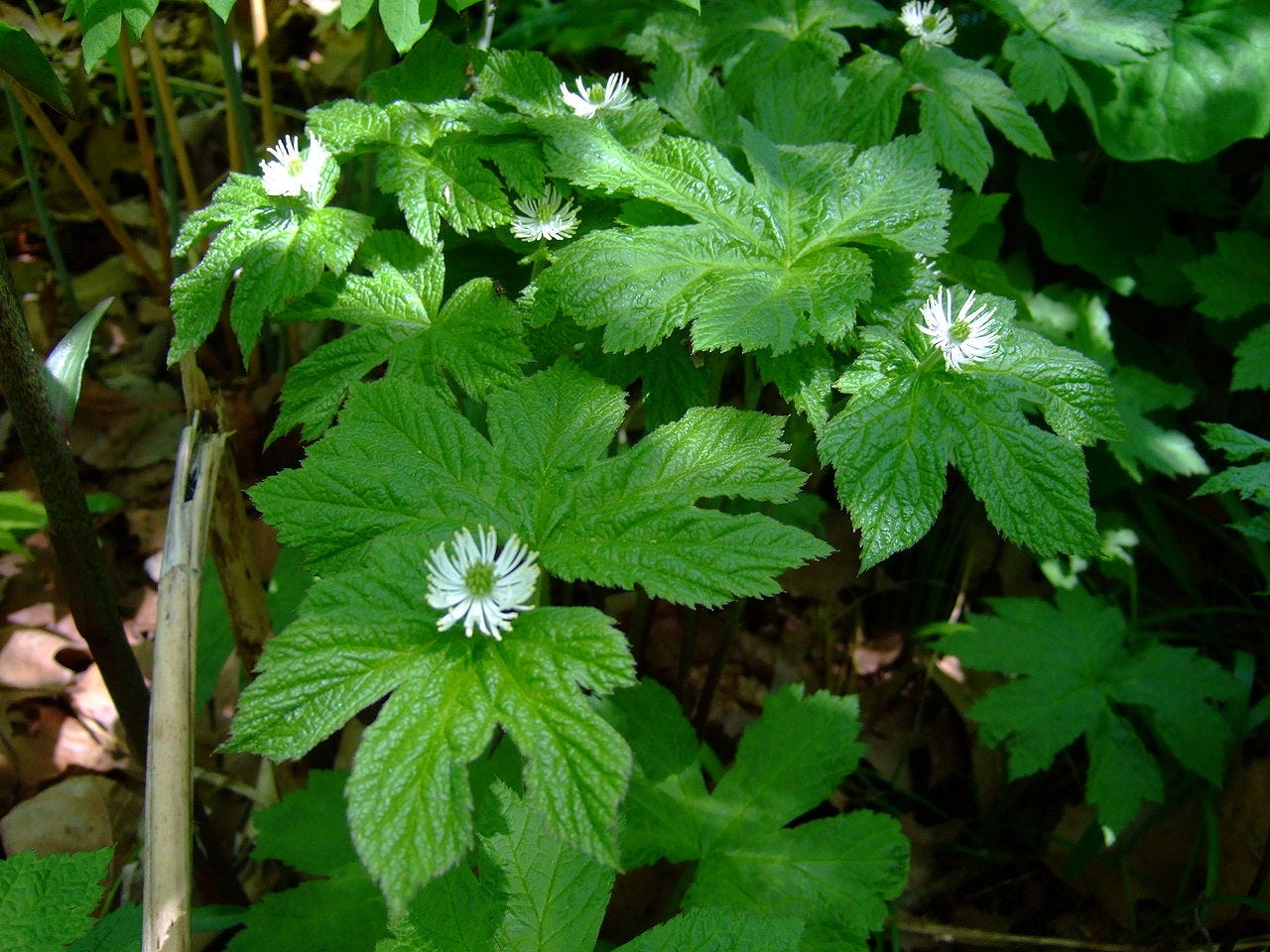
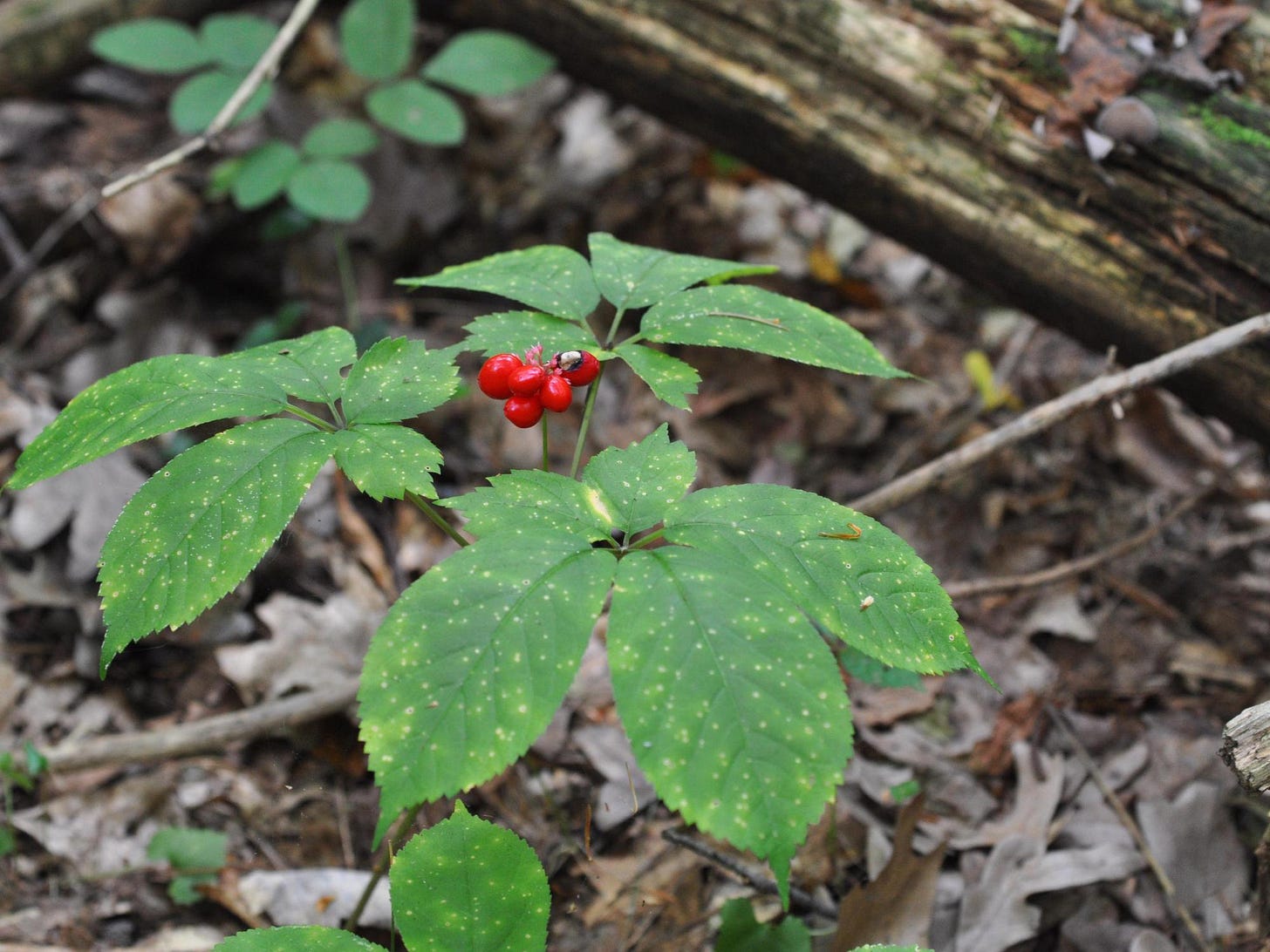
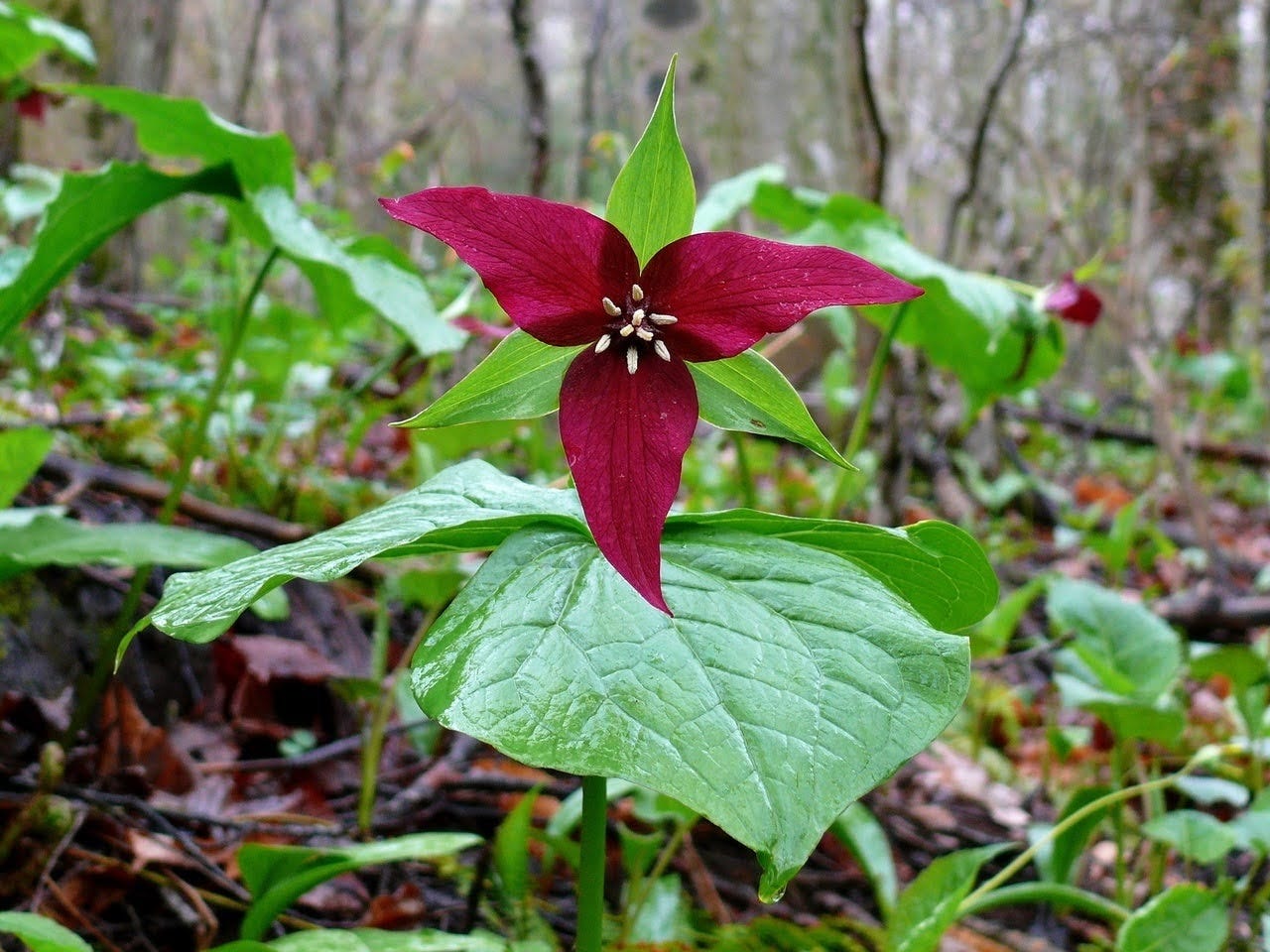
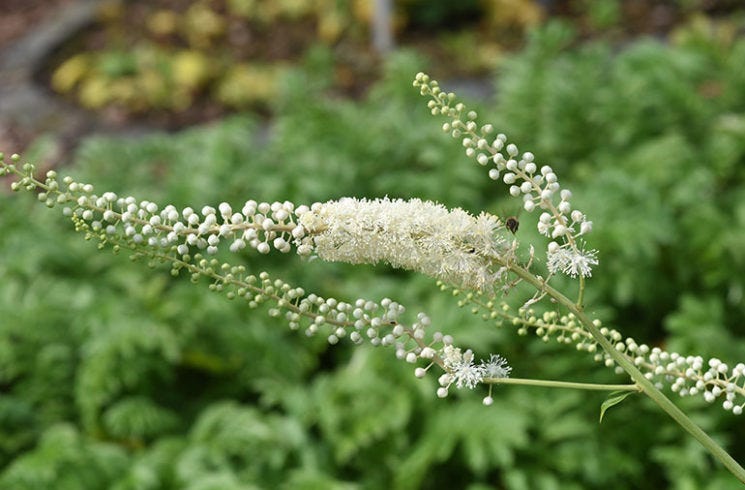
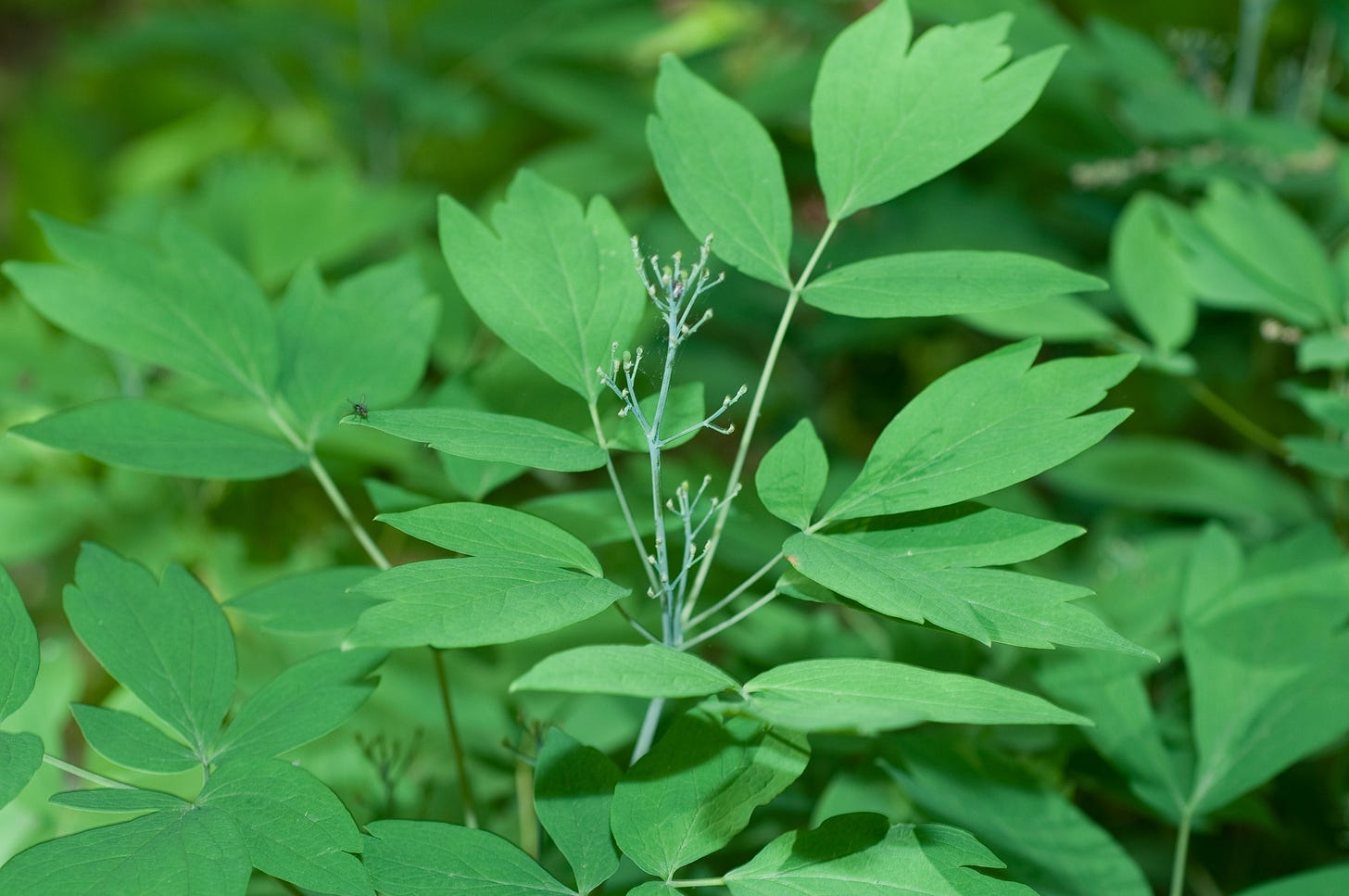
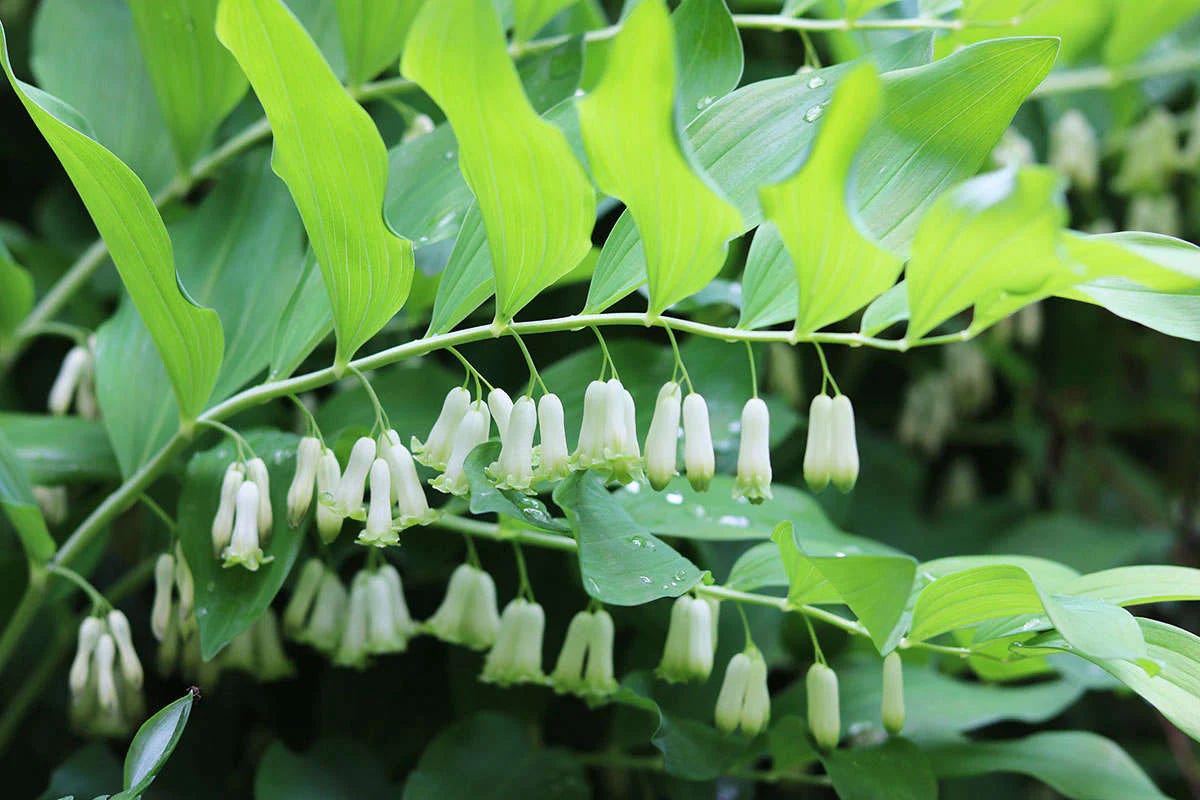
Thank you for bringing this to our attention! This makes total sense! Plants are living things too. We wouldn't want to be uprooted by just anyone and certainly without our permission. I also think trees should be asked if they should be cut down too especially by lumber companies and such. Thank you for a great article!